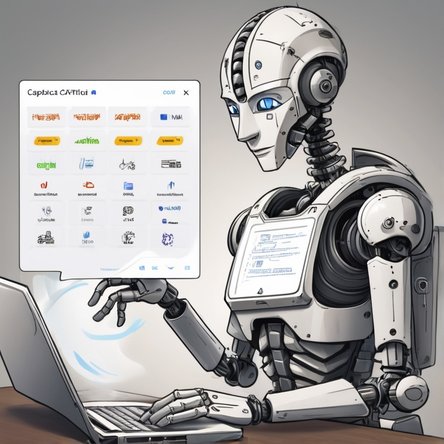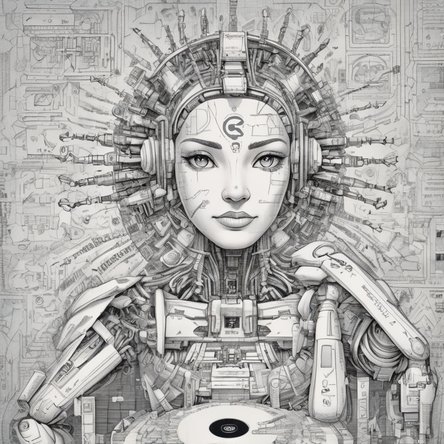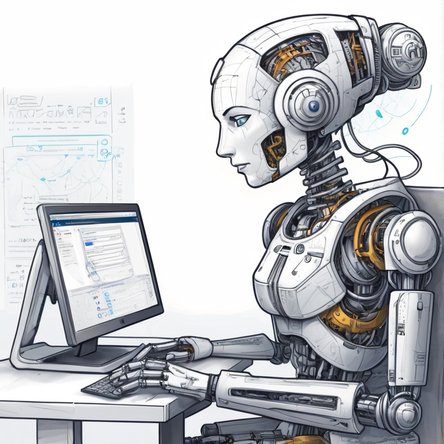Understanding CAPTCHA: Meaning, History, and Importance
Introduction to CAPTCHA
CAPTCHA, an acronym for "Completely Automated Public Turing test to tell Computers and Humans Apart," is a type of challenge-response test used in computing to determine whether the user is human or not. Its primary function is to prevent automated systems or bots from abusing various online services. Since its inception, CAPTCHA has become a critical tool in maintaining the security and integrity of online interactions.
The Origins of CAPTCHA
The concept of CAPTCHA was first introduced in the early 2000s by a team of researchers at Carnegie Mellon University, including Luis von Ahn, Manuel Blum, Nicholas Hopper, and John Langford. The need for CAPTCHA arose from the increasing sophistication of automated programs that could perform tasks designed for humans, such as creating email accounts or engaging in online voting.
The early versions of CAPTCHA involved distorted text that users had to decipher and enter correctly. This method leveraged the human ability to recognize patterns and characters despite distortions, an ability that was beyond the capabilities of contemporary automated systems.
How CAPTCHA Works
CAPTCHA works by presenting a challenge that is easy for humans to solve but difficult for automated programs. The traditional form involves displaying distorted text that users must read and enter into a text box. However, as technology has evolved, so have CAPTCHAs. Modern CAPTCHAs may include image recognition tasks, where users must identify specific objects within a set of images, or audio CAPTCHAs, which are useful for visually impaired users.
The effectiveness of CAPTCHA lies in its ability to exploit the limitations of current artificial intelligence technologies. While a human can easily recognize and interpret distorted characters or identify objects in images, these tasks are significantly more challenging for automated systems.
The Evolution of CAPTCHA
Over the years, CAPTCHA technology has evolved to keep pace with advancements in AI and machine learning. As automated systems became more adept at solving traditional text-based CAPTCHAs, developers introduced more complex and diverse challenges.
One significant evolution is the introduction of reCAPTCHA, a service developed by Google. reCAPTCHA not only protects websites from spam and abuse but also helps digitize books, annotate images, and build machine learning datasets. Users might be asked to transcribe text from old books or identify objects in street view images. This approach not only serves the original purpose of CAPTCHA but also contributes to broader data-driven projects.
Another advancement is the use of behavioral analysis to distinguish humans from bots. Invisible CAPTCHAs monitor user behavior on a website, such as mouse movements and typing patterns, to determine whether the user is human. This method provides a seamless user experience by eliminating the need for explicit challenges.
The Importance of CAPTCHA in Cybersecurity
CAPTCHA plays a crucial role in maintaining the security of online systems. By preventing automated bots from performing tasks designed for humans, CAPTCHA helps protect websites from various forms of abuse, including:
Challenges and Controversies Surrounding CAPTCHA
Despite its benefits, CAPTCHA is not without its challenges and controversies. One of the primary criticisms is its impact on user experience. Traditional CAPTCHAs can be frustrating and time-consuming, leading to user dissatisfaction and potentially driving users away from a website.
Additionally, as AI technology continues to advance, automated systems are becoming increasingly capable of solving CAPTCHA challenges. This ongoing arms race between CAPTCHA developers and bot creators necessitates constant innovation and adaptation.
There are also accessibility concerns. Visually impaired users may find traditional text-based CAPTCHAs difficult or impossible to solve. While audio CAPTCHAs provide an alternative, they are not always available or effective. Ensuring that CAPTCHAs are accessible to all users is an ongoing challenge.
Future Directions for CAPTCHA Technology
The future of CAPTCHA technology lies in balancing security and user experience. Innovations in machine learning and AI are likely to drive the development of more sophisticated and user-friendly CAPTCHA systems.
One promising direction is the use of biometric CAPTCHAs, which leverage unique human characteristics such as facial recognition, fingerprints, or voice patterns. These methods offer a high level of security while minimizing disruption to the user experience.
Another area of exploration is the integration of CAPTCHA with other security measures, such as multi-factor authentication. By combining CAPTCHA with other verification methods, developers can create a more robust security framework that is harder for bots to bypass.
Furthermore, the use of CAPTCHA data for broader applications, as seen with reCAPTCHA, is likely to continue. By contributing to projects such as digitizing books or training AI models, CAPTCHA can serve a dual purpose, enhancing both security and societal benefits.
Conclusion
CAPTCHA has come a long way since its inception, evolving from simple text-based challenges to complex systems that leverage behavioral analysis and machine learning. Its role in cybersecurity remains critical, protecting websites and online services from various forms of automated abuse.
However, the ongoing advancements in AI technology pose significant challenges, necessitating continuous innovation in CAPTCHA design. Balancing security, accessibility, and user experience will be key to the future success of CAPTCHA technology.
As the digital landscape continues to evolve, CAPTCHA will remain an essential tool in the ongoing battle against bots and automated systems, ensuring that online interactions remain secure and genuine. By staying ahead of technological advancements and addressing user concerns, CAPTCHA can continue to play a vital role in the cybersecurity ecosystem.
Introduction to CAPTCHA
CAPTCHA, an acronym for "Completely Automated Public Turing test to tell Computers and Humans Apart," is a type of challenge-response test used in computing to determine whether the user is human or not. Its primary function is to prevent automated systems or bots from abusing various online services. Since its inception, CAPTCHA has become a critical tool in maintaining the security and integrity of online interactions.
The Origins of CAPTCHA
The concept of CAPTCHA was first introduced in the early 2000s by a team of researchers at Carnegie Mellon University, including Luis von Ahn, Manuel Blum, Nicholas Hopper, and John Langford. The need for CAPTCHA arose from the increasing sophistication of automated programs that could perform tasks designed for humans, such as creating email accounts or engaging in online voting.
The early versions of CAPTCHA involved distorted text that users had to decipher and enter correctly. This method leveraged the human ability to recognize patterns and characters despite distortions, an ability that was beyond the capabilities of contemporary automated systems.
How CAPTCHA Works
CAPTCHA works by presenting a challenge that is easy for humans to solve but difficult for automated programs. The traditional form involves displaying distorted text that users must read and enter into a text box. However, as technology has evolved, so have CAPTCHAs. Modern CAPTCHAs may include image recognition tasks, where users must identify specific objects within a set of images, or audio CAPTCHAs, which are useful for visually impaired users.
The effectiveness of CAPTCHA lies in its ability to exploit the limitations of current artificial intelligence technologies. While a human can easily recognize and interpret distorted characters or identify objects in images, these tasks are significantly more challenging for automated systems.
The Evolution of CAPTCHA
Over the years, CAPTCHA technology has evolved to keep pace with advancements in AI and machine learning. As automated systems became more adept at solving traditional text-based CAPTCHAs, developers introduced more complex and diverse challenges.
One significant evolution is the introduction of reCAPTCHA, a service developed by Google. reCAPTCHA not only protects websites from spam and abuse but also helps digitize books, annotate images, and build machine learning datasets. Users might be asked to transcribe text from old books or identify objects in street view images. This approach not only serves the original purpose of CAPTCHA but also contributes to broader data-driven projects.
Another advancement is the use of behavioral analysis to distinguish humans from bots. Invisible CAPTCHAs monitor user behavior on a website, such as mouse movements and typing patterns, to determine whether the user is human. This method provides a seamless user experience by eliminating the need for explicit challenges.
The Importance of CAPTCHA in Cybersecurity
CAPTCHA plays a crucial role in maintaining the security of online systems. By preventing automated bots from performing tasks designed for humans, CAPTCHA helps protect websites from various forms of abuse, including:
- Spam: Bots can create fake accounts and post spam messages on forums, blogs, and social media platforms. CAPTCHA prevents the automated creation of such accounts.
- Brute Force Attacks: Automated programs can attempt to guess passwords through repeated login attempts. CAPTCHA limits the effectiveness of these attacks by introducing challenges that only humans can solve.
- Scraping: Bots can scrape content from websites, including personal information, product listings, and more. CAPTCHA makes it difficult for these automated systems to access and extract large amounts of data.
- Click Fraud: In online advertising, bots can generate false clicks on ads, leading to inflated costs for advertisers. CAPTCHA helps ensure that ad clicks are made by genuine users.
Challenges and Controversies Surrounding CAPTCHA
Despite its benefits, CAPTCHA is not without its challenges and controversies. One of the primary criticisms is its impact on user experience. Traditional CAPTCHAs can be frustrating and time-consuming, leading to user dissatisfaction and potentially driving users away from a website.
Additionally, as AI technology continues to advance, automated systems are becoming increasingly capable of solving CAPTCHA challenges. This ongoing arms race between CAPTCHA developers and bot creators necessitates constant innovation and adaptation.
There are also accessibility concerns. Visually impaired users may find traditional text-based CAPTCHAs difficult or impossible to solve. While audio CAPTCHAs provide an alternative, they are not always available or effective. Ensuring that CAPTCHAs are accessible to all users is an ongoing challenge.
Future Directions for CAPTCHA Technology
The future of CAPTCHA technology lies in balancing security and user experience. Innovations in machine learning and AI are likely to drive the development of more sophisticated and user-friendly CAPTCHA systems.
One promising direction is the use of biometric CAPTCHAs, which leverage unique human characteristics such as facial recognition, fingerprints, or voice patterns. These methods offer a high level of security while minimizing disruption to the user experience.
Another area of exploration is the integration of CAPTCHA with other security measures, such as multi-factor authentication. By combining CAPTCHA with other verification methods, developers can create a more robust security framework that is harder for bots to bypass.
Furthermore, the use of CAPTCHA data for broader applications, as seen with reCAPTCHA, is likely to continue. By contributing to projects such as digitizing books or training AI models, CAPTCHA can serve a dual purpose, enhancing both security and societal benefits.
Conclusion
CAPTCHA has come a long way since its inception, evolving from simple text-based challenges to complex systems that leverage behavioral analysis and machine learning. Its role in cybersecurity remains critical, protecting websites and online services from various forms of automated abuse.
However, the ongoing advancements in AI technology pose significant challenges, necessitating continuous innovation in CAPTCHA design. Balancing security, accessibility, and user experience will be key to the future success of CAPTCHA technology.
As the digital landscape continues to evolve, CAPTCHA will remain an essential tool in the ongoing battle against bots and automated systems, ensuring that online interactions remain secure and genuine. By staying ahead of technological advancements and addressing user concerns, CAPTCHA can continue to play a vital role in the cybersecurity ecosystem.




